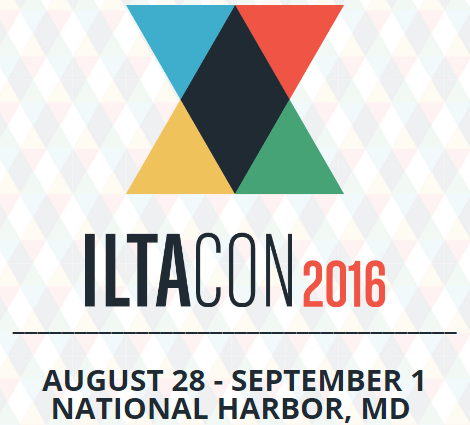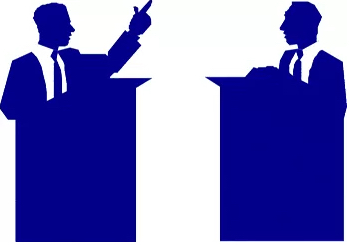Thursday’s ILTACON 2016 Sessions: eDiscovery Trends
As noted yesterday, Monday and Tuesday, the International Legal Technology Association (ILTA) annual educational conference of 2016 (otherwise known as ILTACON) is happening this week and eDiscovery Daily will be reporting this week about the latest eDiscovery trends being discussed at the show. This is the last day to check out the show at the Gaylord National Resort & Convention Center if you’re in the Washington/Baltimore area with a number of sessions available and over 195(!) exhibitors providing information on their products and services.
Perform a “find” on today’s ILTACON conference schedule for “discovery”, “litigation support” or “information governance” and you’ll get at least 3 sessions with hits. So, there is plenty to talk about! Sessions in the main conference tracks include:
9:00 AM – 10:00 AM:
The Intersection Between Records Information Management & Info Governance: While the scope of information governance is broad (business units/practice areas, legal, IT, privacy and security), it is nearly impossible to have an effective information governance program without strong records and information management (RIM). Join us for a discussion on the scope of information governance, the key contributions to expect from the different parts of the law firm and how a robust records management program supports the overall goals of information governance.
Speakers include: Tera Ladner, Director, Information Governance Aflac, Inc.
11:00 AM – 12:00 PM:
How Future Technology Will Affect Litigation Support: A panel of e-discovery industry leaders and visionaries will discuss what future technologies will have an effect on litigation support and e-discovery. Find out what these leaders think will happen in the next few years and what you need to be ready for with the coming changes in technology.
Speakers include: Stephen Dooley, Assistant Director of Electronic Discovery and Litigation Support Sullivan & Cromwell LLP; Craig Ball, ESI Special Master and Attorney Craig D. Ball, P.C.; Jay Leib, Founder and CEO NexLP; Sheila Mackay, Vice President Xerox Legal Business Services; Dave Copps, Founder & CEO Brainspace; Brendan Hall, Vice President, Business Development Xerox Legal Business Services.
1:30 PM – 2:30 PM:
A Road Map To Gathering and Analyzing Client Discovery Data Across Matters, 1:30 PM – 2:30 PM ET: Business intelligence was introduced to the corporate sector 20 years ago, and it is now being incorporated into legal technology. Corporations have used this time to gather and analyze data. They have built data warehouses to link sales data to weather data to bolster on-call staff for the drive-thru window when rain is forecast. In the legal profession, we are starting to use business intelligence to analyze contractor review speeds and related work product. That’s just the beginning! A panel will explore how legal departments are using business intelligence across matters to reuse work product such as privilege calls, relevance and specific coding calls — all on the same documents and previously reviewed!
Speakers include: Jon Canty, Manager Sandline Discovery LLC; Tom O’Connor, Senior EDiscovery Consultant Advanced Discovery; Richard Dilgren, National Director, Data Science & Strategy FRONTEO; Kate Head, Client Executive Advanced Discovery.
So, what do you think? Did you attend ILTACON this year? What did you think of the conference? Please share any comments you might have or if you’d like to know more about a particular topic.
Disclaimer: The views represented herein are exclusively the views of the author, and do not necessarily represent the views held by CloudNine. eDiscovery Daily is made available by CloudNine solely for educational purposes to provide general information about general eDiscovery principles and not to provide specific legal advice applicable to any particular circumstance. eDiscovery Daily should not be used as a substitute for competent legal advice from a lawyer you have retained and who has agreed to represent you.







